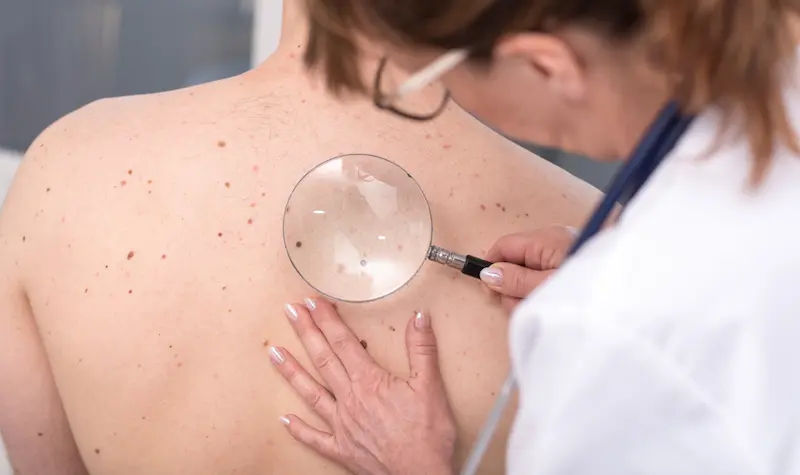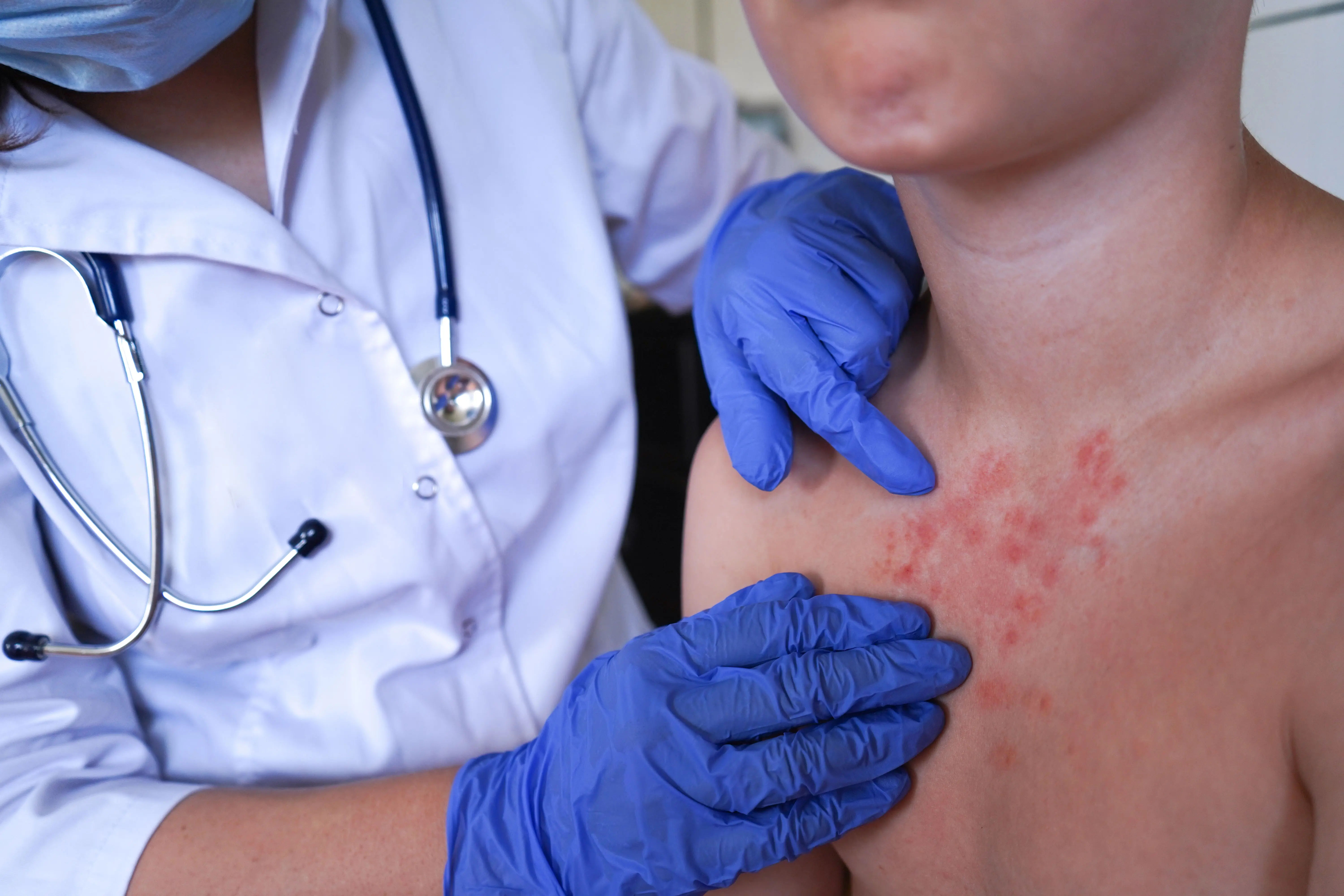- Male
- 58 Years
- 22/01/2025
A black spot just appeared near the corner of my eye, on the side of my nose, and it's about the size of a big drop. I only noticed it when I woke up this morning. It's not itchy, and it doesn't feel like dry skin. I'm starting to get a bit worried. What might be causing this, and what tests should I consider getting done?
Answered by 1 Apollo Doctors
The sudden appearance of a non-itchy, non-dry black spot under the eye, near the nose, could be due to various causes such as a benign skin lesion (melanocytic nevus), allergic reaction, or vascular-related issues (hematoma or vascular malformation); consult a dermatologist
Dr. Anshul Suggests...
Consult a Dermatologist
Answered 04/07/2025
0
0


Ask Apollo
AI powered Health Chatbot
-
Possible Causes of a New Black Spot Near the Eye
- Common reasons include benign moles, freckles, or age spots.
- Less common causes could be melanoma or other skin cancers.
- Monitor for changes in size, shape, or color.
-
When to Seek Medical Evaluation
- Prompt evaluation is advised due to the spot's sudden appearance and location.
- Urgent attention is needed if there is rapid growth, irregular borders, or bleeding.
-
Recommended Diagnostic Tests
- Skin examination by a dermatologist.
- Dermoscopy to examine the lesion non-invasively.
- Skin biopsy if the lesion appears suspicious.
-
Relevant Medical Specialties
- Dermatology for skin assessment and diagnosis.
- Ophthalmology if the lesion affects the eye area or vision.
-
Next Steps and Monitoring
- Monitor the spot for any changes.
- Protect skin from sun exposure.
- Schedule follow-up appointments as recommended by the specialist.
Recommended next steps
Consult a Dermatologist or Consult a Ophthalmologist
Answered 20/08/2025
0
0
More Dermatology Health Queries
View allI'm struggling with acne scars and dark spots on my face and I'm really curious if taking Evion capsules orally would be safe for me. I'm also in the middle of a weight loss journey; I'm hitting the gym regularly and sticking to a diet plan. My big worry is whether Evion could lead to weight gain. Are there any side effects I should know about?
Evion capsules, which contain Vitamin E, can be beneficial for skin health. You can take Evion 400mg capsules orally once daily. Vitamin E can help improve skin texture and reduce scars and dark spots. Taking Evion capsules should not directly cause weight gain. However, as with any supplement, it is essential to maintain a balanced diet and exercise routine to support your weight loss goals.
Answered by 1 Apollo Doctors
I've been dealing with this fungal infection for a year now and it's really starting to bother me. Could you tell me what I can do to finally get rid of it?
take antibiotics treatment
Answered by 1 Apollo Doctors
I'm masturbating daily and I'm a bit worried about whether this frequency might affect my sperm count. Plus, I've noticed I've got quite a few pimples on my face. I'm wondering if there might be a connection between masturbation and acne. Could you give me some advice on this?
Masturbating once a day is considered a normal and healthy frequency; research suggests that frequent ejaculation, including masturbation, may not significantly impact sperm count or fertility in healthy males; however, excessive masturbation (multiple times a day) may lead to temporary decreased sperm count, but this effect is reversible; regarding pimples, there is no direct scientific link between masturbation and acne
Answered by 1 Apollo Doctors
Disclaimer: Answers on Apollo 247 are not intended to replace your doctor advice. Always seek help of a professional doctor in case of an medical emergency or ailment.




